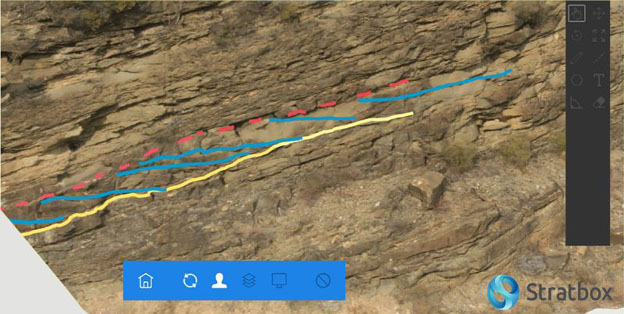
Date: 9th - 11th May 2023
Start Time: 14:00 BST
Instructors: Tip Meckel, Jurriaan Reijs
RPS announces the addition of a new CCS course to their NTA Program: The Geoscience of CCS Using Virtual 3D Outcrop Analogues and Virtual Core. We will be delivering this twice in a virtual format in May (9-11) and November (7-9) with instructors Tip Meckel and Jurriaan Reijs.
An ideal course for geoscientists and petroleum engineers interested in using their skills for CCS and its effective subsurface evaluation.
Business impact: This course will equip geoscientists and petroleum engineers to explore for the most valuable CCS opportunities and define their value more effectively, leveraging applicable best practices from hydrocarbon industry, as well as key lessons learned and pitfalls from CCS projects around the world. Participants will learn to make the observations required to evaluate storage resource leads, including risks, opportunities, and uncertainties.
Carbon Capture and Storage (CCS) is an effective technology for the reduction of CO2 emissions. This course takes a very practical approach, where key geoscience concepts impacting the success of a CCS project are introduced and explained. Subsequently, the understanding of these concepts is deepened during virtual, interactive, outcrop and core studies, where students observe the key elements of these concepts themselves. For these virtual exercises, excellent CCS project outcrop analogues are used as well as core from real CCS projects. The value of geological observations to CCS projects is illustrated with real examples from various CCS projects around the world that each have a valuable lesson to teach us.
Key topics include value drivers, evaluation practices, similarities and differences with oil and gas exploration and production, as well as key lessons learned from industry experience so far.
Participants will learn to:
- Articulate the case for CCS.
- Assemble the key CCS concepts and value drivers.
- Effectively explore for CCS opportunities.
- Formulate the key geological observations to define and evaluate a storage resource.
- Apply relevant hydrocarbon industry insight while assessing key differences.
- Appraise CCS best practices and pitfalls using real examples.
This course is designed for geoscientists and petroleum engineers interested in using their skills for CCS and its effective subsurface evaluation.
Click here for full details.
KeyFacts Energy Industry Directory: RPS Energy l KeyFacts Energy news: Training
 KEYFACT Energy
KEYFACT Energy